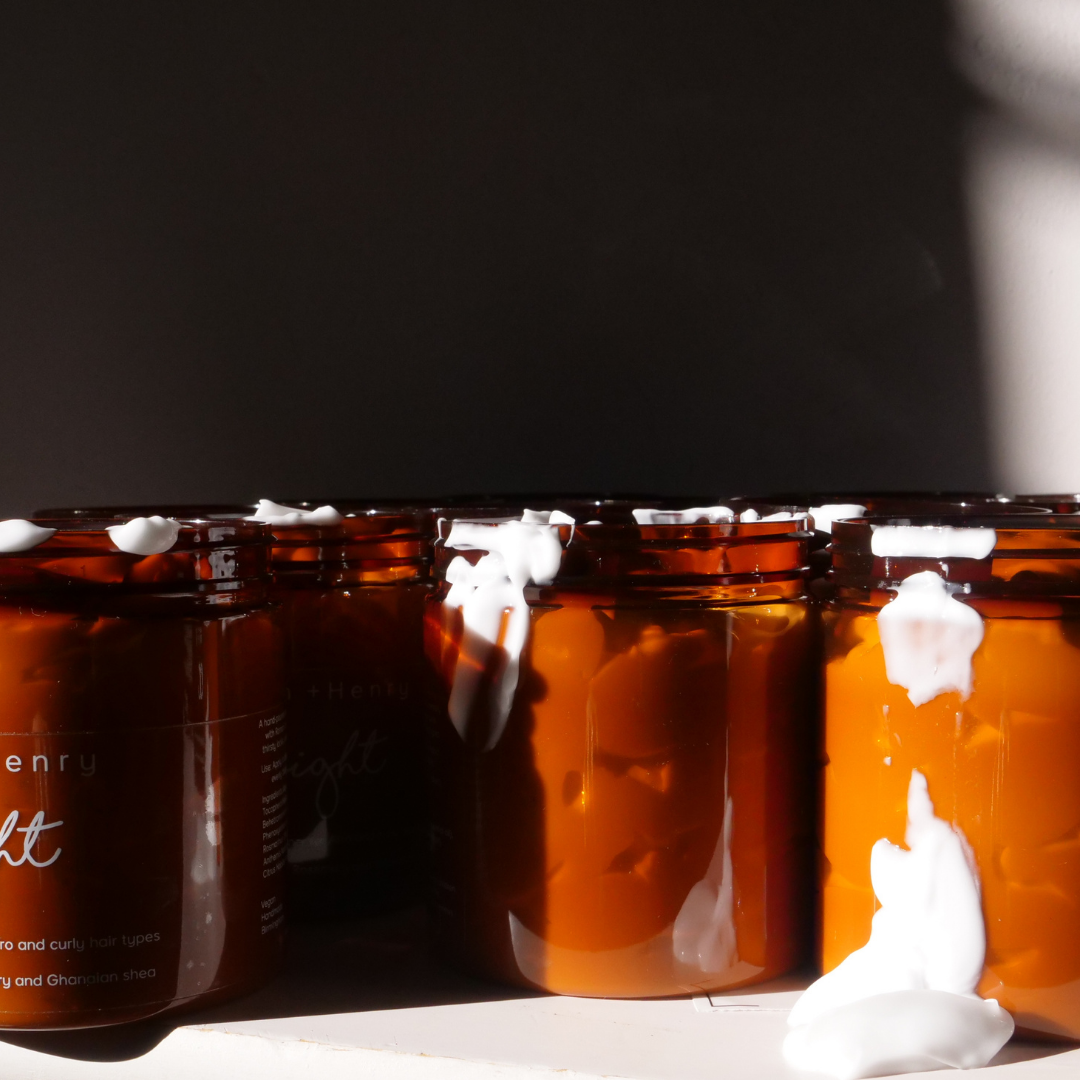
Is my Afro hair product safe?
Share
There’s been a lot of noise, we know. With products being culled, brands being cancelled and people making sometimes sound, sometimes unsound allegations.

We’re here to clear things up, and help you identify whether the products you have at home right now, are safe.
What do we mean by safe? We mean does the product contain carcinogens? Don’t worry, you don’t need a PhD in chemistry to work it out. We’ve compiled a list of ingredients that have been associated with respiratory issues, hair loss, skin irritation, and cancer diagnoses.
The list - ingredients that would never find their way in Jim + Henry products, and what we avoid:
- sulfates
- silicones
- parabens
- mineral oil
- phthalates
- fragrance/perfume
- PEGs
- EDTA
- Triclosan
- Formaldehyde
- Sodium lauryl sulfate {SLS} / Sodium laureth sulfate {SLES}
- Dimethicone
- Triethanolamine
- Short- Chain Alcohols {SD Alcohol 40, Ethanol, Propyl, Propanol, Isopropyl}
- PVP/ VA Copolymer
This is simply a list of things to avoid. We delve a little deeper below. There’s a lot to cover, but we want to keep things clear, so note the following.
If your Afro hair products, whether it’s a gel, foam, shampoo, conditioner or serum contain the following ingredients it’s OK. What you do with the information is your choice. We are sharing what we know and this is specifically from our founder, Tammy.

Hello Darlings. I’ve spent years researching ingredients, so here’s my 2 cents of things to avoid because we deserve to live well, and we deserve safe haircare.
Without further ado:
Polysorbate 60 - it doesn’t sound like shea butter, or any other natural ingredient, does it? That’s becasue it isn’t natural.
Research studies have shown that it can increase intestinal membrane permeability.
Ingredients made from sorbitol - Sorbitol is a naturally occurring sweetener synthetically extracted from glucose.
Note, when something is synthetically extracted it means it is often extracted in a highly-chemical process such as heating at extreme temperatures, adding chemicals to ease the extraction process, etc.

Whereas with essential oils, either distillation (heat and water) or the ancient extraction process of enfleurage (submerging flowers in animal fat), no chemicals are used.
Brassicamidopropyl Dimethylamine - from rapeseed oil. Avoid. Brassica meaning rapeseed. But rapeseed oil is highly processed. Instead we are using Safflower oil.

There’s so much more to say, but I’ll keep it succinct for now. If you have any questions about a specific products, email me: hello@jimandhenry.com
We’ll have our official, detailed report of ingredients to avoid and embrace out soon, but until then, we’ll keep sharing what we know.